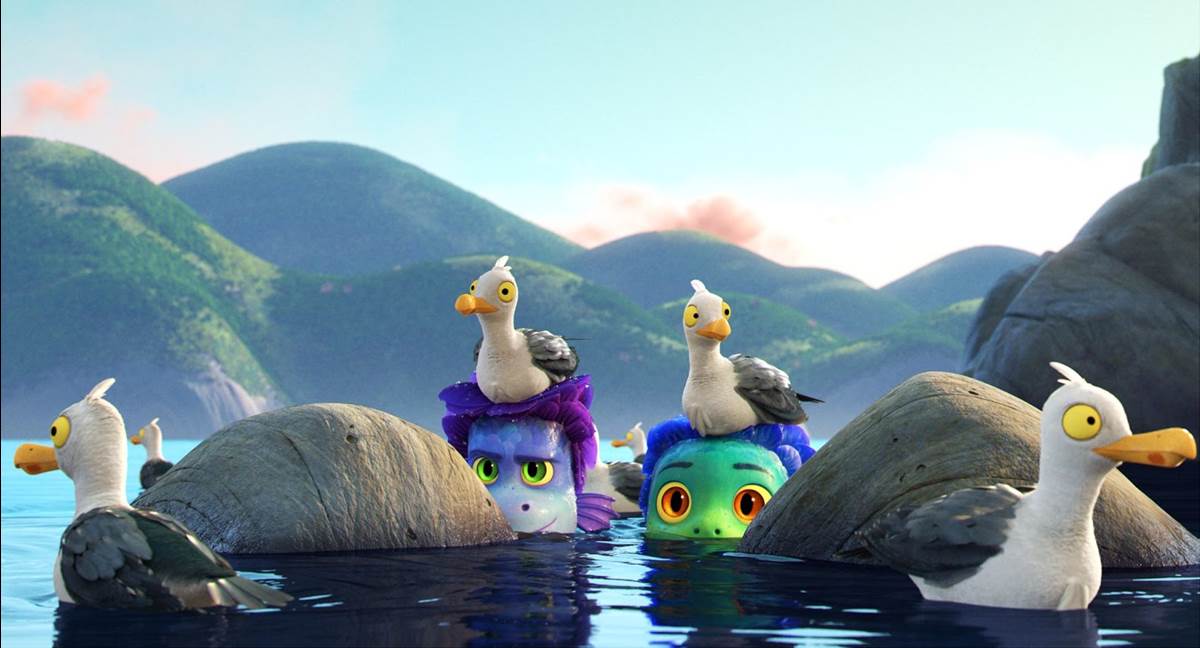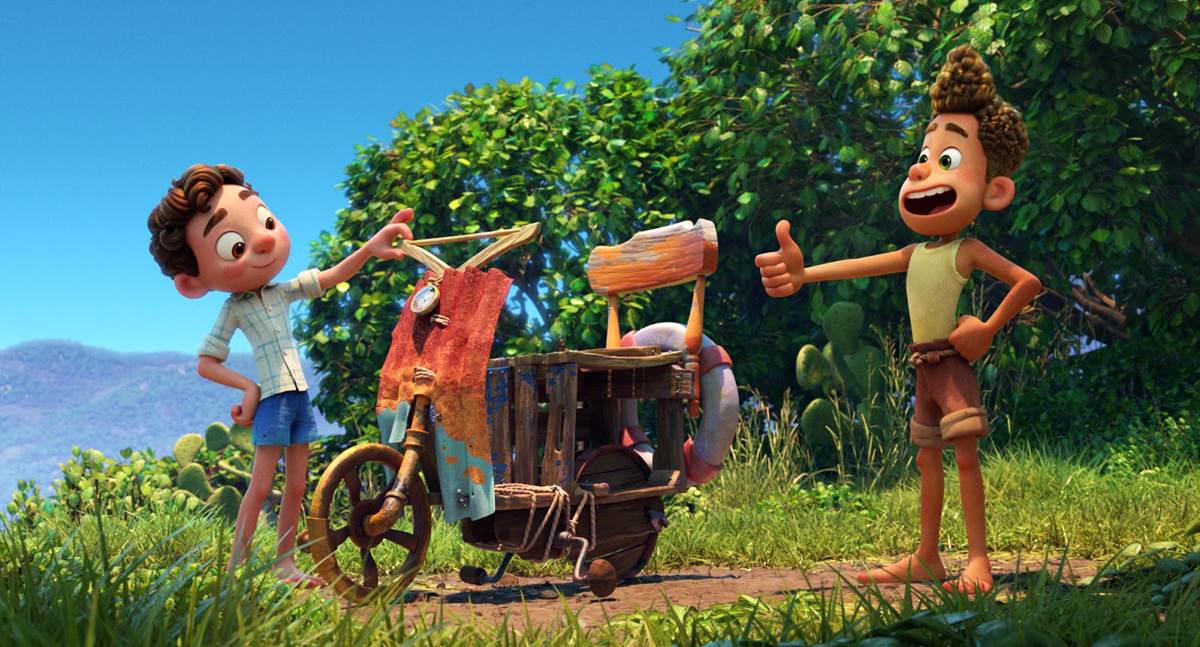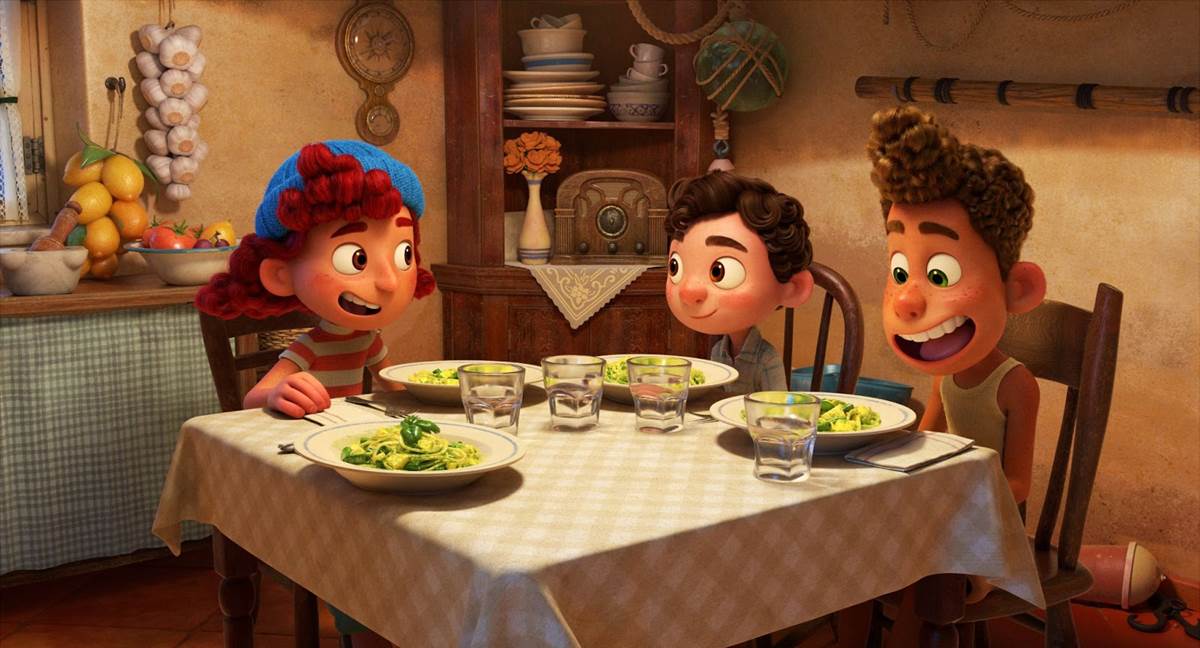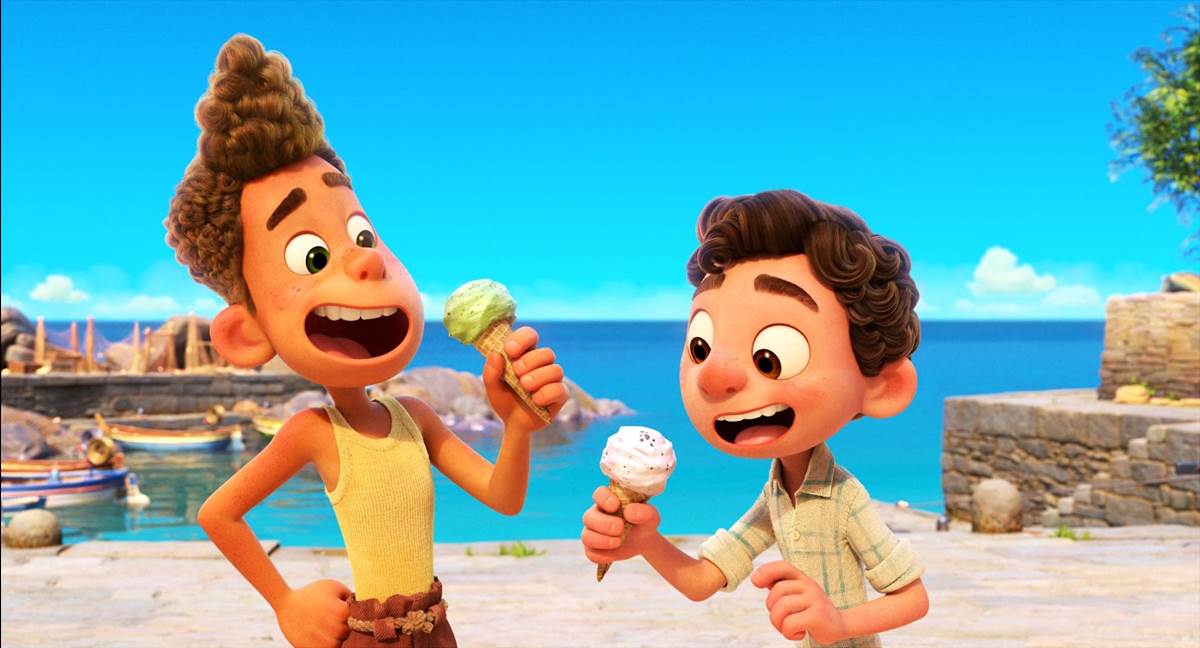Movie Review: Pixar’s “Luca” is a Hilarious Story About Friendship for the Whole Family
From Enrico Casarosa, director of the Pixar animated short La Luna, comes Luca, a summertime adventure for the whole family. In Pixar Animation Studios’ 24th animated feature, audiences are transported to the Italian Riviera to ocean waters where sea monsters are real. But rather than lurking beneath the surface to attack fishermen, they lead surprisingly human lives beneath the waves.

© 2021 Disney/Pixar. All Rights Reserved.
Seamonster Luca is bored of his daily routine, which includes herding his family’s fish farm and coming home to his underwater cave, where he shares a room with his grandmother. When he happens upon some human stuff on the seafloor, he meets Alberto, another seamonster who, to Luca’s great surprise, is comfortable living on land. When Luca’s parents (voiced by Maya Rudolph and Jim Gaffigan) find out that their son has been to the surface, they overreact, calling his deep sea Uncle Ugo (Sascha Baron Cohen) to take Luca away from the shoreline, prompting him to run away to the surface to live with Alberto.
The timid Luca is taught to “Silenzio” his “Bruno” (the voice of doubt inside your head) by Alberto, who introduces Luca to his passion, Vespa scooters. Making a pact to get one, the two seamonsters, who transform into humans when dry, venture to the nearby town of Portorosso. It’s there that they befriend a girl named Giulia and pledge to join her in a triathlon race where the grand prize is enough money to get the motorized scooter they so badly want.

© 2021 Disney/Pixar. All Rights Reserved.
A story of friendship and the final years of true childhood, Luca is more low-stakes than audiences typically expect from Pixar, making it feel like a breath of fresh air in many ways. For a studio that has recently told stories about aging (Cars 3), gender roles (Incredibles 2), retirement (Toy Story 4), bringing back the dead (Onward) and the meaning of life (Soul), the lighter fare in Luca is like stepping back into simpler times. Much like the childhood wonder of Luca and Alberto, audiences will be caught up in its whimsy and soon forget that the film doesn’t really have a deep message it wants to push on you. This is the first Pixar film in a long time that doesn’t feel designed to bring its audience to tears.
Luca is a stylistic departure, ditching the studio’s recent efforts to make the world look photo realistic in favor of stylization. The curl of the waves, the angles of the buildings, the colors of the natural environment, and the grooming of hair all feel more like a cartoon than a Pixar computer animated film. The story is set in the mid-century and in many ways, Luca looks like it could have been made with hand-drawn animation of that era.

© 2021 Disney/Pixar. All Rights Reserved.
In its finest moments, Luca is outlandishly funny. Misunderstandings about the human world abound, like the Scuttle moments from The Little Mermaid on steroids, entering the minds of Luca and Alberto to see what they perceive. From Giulia’s cat Machieveli sensing that there’s something fishy about her new friends, to Luca’s uncle’s descriptions of life in the no-light depths of the oceans, there are so many laugh-out-loud moments in Luca that it leaves you feeling elated and content, one of Pixar’s funniest films.
Luca leaves its audience with a huge smile on their face. This story about the meaning of friendship and the last days of adolescence may be one of Pixar’s most lighthearted, but that also helps set it apart amongst the twenty-three films that came before it. And if you’re really smart, you’ll plan a pesto pasta meal at home when you watch it with the family.

© 2021 Disney/Pixar. All Rights Reserved.
I give Luca 5 out of 5 gelato cones.
Luca starts streaming June 18th only on Disney+.


